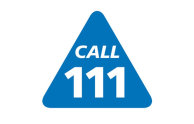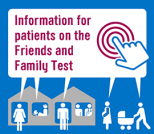Chronic Diseases
Diabetes
In diabetes blood sugar levels rise, as a result of either a lack of a hormone called insulin (which regulates blood sugar levels), or the body becomes resistant to the effects of insulin. There are two types of diabetes. Type I diabetes occurs because the body is lacking enough insulin. It usually starts in younger people (often in childhood or adolescence) and requires treatment with insulin. Type II diabetes usually starts later in life and is increasingly common. It usually develops because the body starts to become resistant to the effects of insulin and over time the levels of insulin in the body fall. There is a strong hereditary link, and the condition is more common in overweight individuals. Managing type II diabetes can be with diet and healthy living alone, but may also need tablets, and in some people insulin is required. When Type II diabetes becomes severe or poorly controlled, some people need to use insulin to control their blood sugar levels. Diabetes affects many parts of the body including eyes, kidneys, nerves, heart and brain. It increases your risk of developing heart disease. We know that if certain things are monitored and kept well controlled the risk of problems developing is reduced significantly. Every year you should have a blood test to check your blood sugar control (Hba1c) kidney function and cholesterol. Your urine also needs to be checked yearly for evidence of protein leakage (which is a marker for kidney damage.) Every 6 months you should have your blood pressure checked, and once year you should have a more detailed check with the nurse, which will involve measuring your weight, checking your feet, nerves and circulation and gives you an opportunity to discuss your condition. Once a year you should attend for eye screening – which involves looking at the back of your eye for signs of eye damage.
Asthma
This is a condition where the airways can become tight or constricted, causing wheezing, shortness of breath or occasionally a persistent dry cough. It can start at any time of life - but often starts in childhood. It is sometimes linked to other problems such as hay fever or eczema and may run in families. Symptoms vary in severity and frequency between people, and there may be certain triggers such as exercise, dusty environments, changes in weather or catching a cold etc. The management of asthma involves using inhalers to control the symptoms and avoiding things that worsen your condition or cause permanent lung damage such as smoking. Once a year you must see the nurse for a full asthma check. This involves discussing how well your symptoms are controlled, assessing your airway function by measuring your peak flow, checking your inhalers are working for you, and that you are using them correctly and identifying any possible trigger factors. You need to bring your usual inhalers with you on the day.
Chronic Obstructive Airways Disease (COPD)
This is an increasingly common condition which starts later in life. In the past it was often called chronic bronchitis or emphysema but nowadays we call it COPD. Like asthma it affects the airways of the lungs and the presenting symptoms (wheeze, shortness of breath and persistent cough) are similar but it differs from asthma in that the function of the lungs is usually permanently affected. It is strongly linked to cigarette smoking and usually develops in people who have smoked either in the past or continue to smoke. We know that the most important thing to help prevent COPD from worsening is giving up smoking, as this is the only thing that slows the decline in lung function - no matter what age you stop. The condition is additionally managed with inhalers. Once a year you should have your lung function measured with a breathing test (called Spirometry). This assesses the severity of your condition and helps us to identify whether your inhalers are working for you, and can be performed in the surgery by our nurses. You must also see the nurse annually to check your inhaler technique, discuss any additional problems and record your level of breathlessness.
Ischaemic Heart disease (IHD)
Ischaemic heart disease is a very common condition resulting from blockage of the arteries that supply blood to the heart. IHD usually presents with chest pain (often on exercise), but can also result in painless symptoms such as a decline in your exercise ability (for instance walking up a flight of stairs). Fortunately most people get early symptoms before they develop any serious complications, and you should see your doctor if you develop any. If your pain is severe and you feel unwell (short of breath, dizzy or feel your heart race) then you should call an ambulance urgently. There are many known risk factors, such as smoking, being overweight and high blood pressure and treatment is designed to reduce these risks by lifestyle changes as well as medications. Once a year you should have a blood test to check your glucose and cholesterol level, and should see the nurse to measure your weight and blood pressure.
Hypertension
Raised blood pressure is common and normal in certain situations. Hypertension occurs when your blood pressure is raised all of the time. The diagnosis should be made from several readings over time, and not from a single reading. High blood pressure does not cause symptoms (except in a few people), but if left untreated for many years can cause the arteries to stiffen throughout your body, leading to problems with your kidneys, legs, heart and brain. It is a major risk factor for heart disease and stroke. There are lots of things that can be done to reduce your blood pressure, including loosing weight and eating lots of vegetables as well as taking medications. On first diagnosis you will have a blood test to detect your cholesterol and glucose levels and should have your blood pressure checked regularly every 6 months by the nurse.
Cerebrovascular Disease
There are two types of Stroke, ischaemic and haemorrhagic. An ischaemic stroke is the most common type, (accounting for 90% of all strokes), and is caused by a small clot in the arteries in the brain, leading to a small area of the brain dying. Commonly this clot is quickly broken up by the body and the symptoms of the stoke resolve fully - this is called a transient ischaemic attack (TIA). The effects of a stroke vary depending on how the brain is affected, but commonly include sudden weakness of an arm or leg or even face, sudden changes in vision or sudden slurring of speech. If you develop any of these symptoms it is important you call an ambulance urgently, as treatment to reverse the effects of the stroke may be given if you reach the hospital quickly. If you have had a stroke, you should have your blood pressure checked by the nurse every 6 months and have an annual blood test to check your cholesterol and glucose.
Chronic Kidney Disease (CKD)
At birth, we are born with a million nephrons in each kidney, which help filter the blood. As we age though, we loose these nephrons and slowly over time our kidney function declines. Fortunately we have enough nephrons to last a lifetime (on average to the age 140 years old!), but in a few individuals the rate of nephron loss is higher and they may develop Chronic Kidney Disease (CKD). Patients with CKD do not get any symptoms until their kidney function is severely impaired, and the condition is usually diagnosed on a routine blood testing. Once diagnosed your kidney function can be prolonged by closely controlling your blood pressure, and taking medication to protect the kidneys, called ACE inhibitors. Twice a year you should have your blood pressure checked and will be asked to provide a urine sample once a year which we will check for evidence of protein.
Mental Health
Patients taking anti-psychotic medication have a higher risk of heart attacks and strokes, and should see a nurse or doctor once a year. You should have a blood test, and basic examination and use the opportunity to discuss any problems related to their condition.












